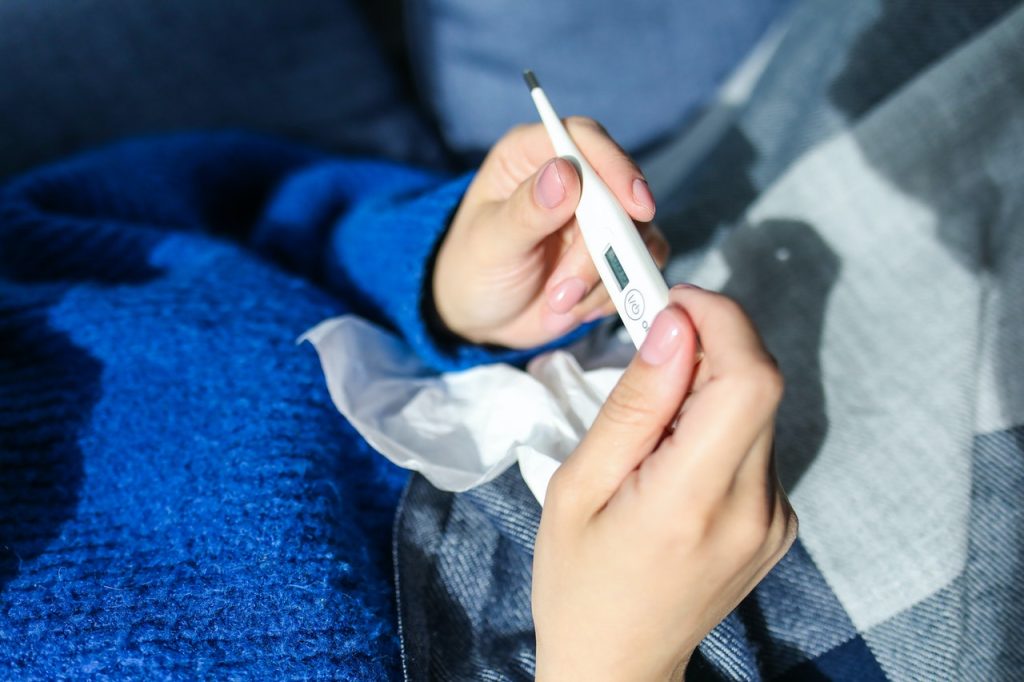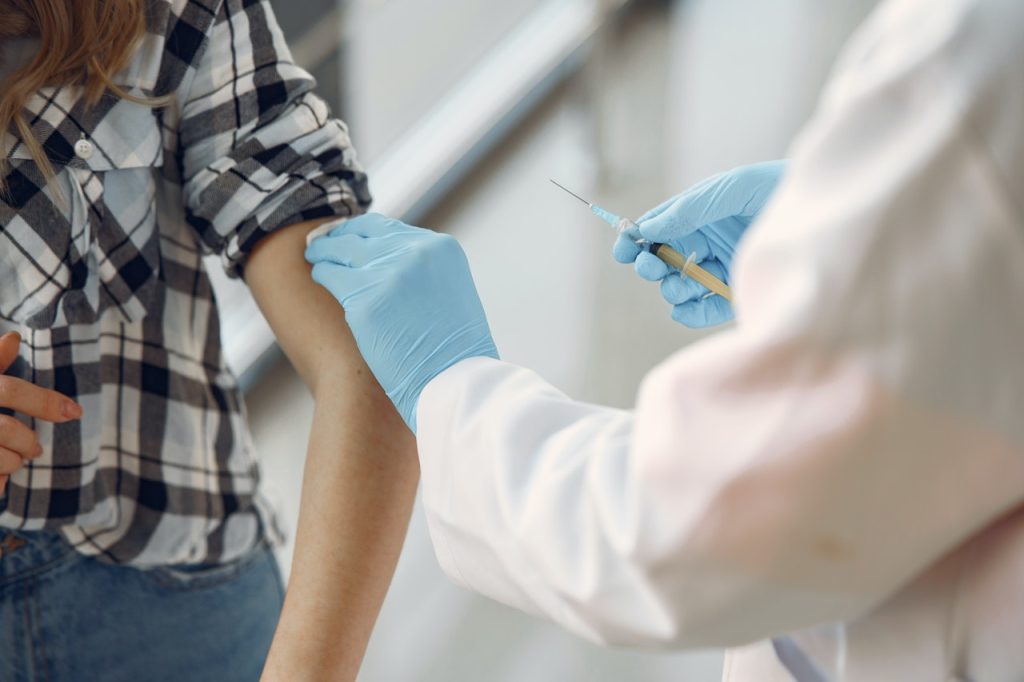Nowadays, every cough, cold, or tickle in the throat leads to one important question: Do I have COVID-19? This question becomes complex depending on the environment, weather, and season you’re in. As COVID symptoms are closely similar to that of the flu and seasonal allergies, getting tested is the only sure way to know for certain what illness you might have. In this article, we explore the differences between seasonal allergies vs COVID.
What Do Seasonal Allergies Look Like?
Viruses don’t cause seasonal allergies. Rather, they are the responses of your immune system when triggered or exposed to allergens, such as dust, mold, pollen, pet dander, and trees.
Allergies can develop seasonally or be present all year long. Symptoms of seasonal allergies can range from slight annoyances to more severe, including:
- Ear congestion.
- Itchy ear canals, sinuses, or throat.
- Itchy or watery eyes.
- Mild fatigue.
- Postnasal drainage.
- Runny or stuffy nose.
- Sneezing.
Less commonly, seasonal allergies can also be characterized by coughing, headache, shortness of breath, and wheezing.
Generally, seasonal allergies are not contagious and may last for several weeks. Treatment of seasonal allergies includes avoidance of exposure to allergens where possible, decongestants, immunotherapy (known as allergy shots), nasal steroid sprays, and over-the-counter or prescription antihistamines.

What are the Symptoms of COVID-19?
COVID-19 is a contagious respiratory disease that occurs when you become infected with the virus SARS-CoV-2. It spreads between people who are in close contact, through respiratory droplets released when someone breathes, coughs, sneezes, or talks.
People with COVID-19 experience a range of mild to severe symptoms. These symptoms can appear 2-14 days after exposure to the virus (or, not at all). These symptoms include:
- Coughing.
- Diarrhea.
- Fatigue.
- Fever or chills.
- Headache.
- Loss of taste or smell.
- Muscle or body aches.
- Nausea or vomiting.
- Runny nose or congestion.
- Shortness of breath or difficulty breathing.
- Sore throat.
If you or a loved one develop any of these warning signs, it’s crucial to seek medical care immediately if you’re experiencing:
- Confusion.
- Discoloration of lips, nail beds, or skin.
- Trouble breathing.
- Inability to wake up or stay awake.
- Persistent pain or pressure in the chest.
In the long term, ongoing health issues associated with COVID-19 include brain fog and diabetes, as well as depression, stress, and anxiety.
The Differences Between Seasonal Allergies vs COVID
According to the CDC, there are several ways to spot the differences between seasonal allergies vs COVID. Symptoms like body or muscle aches, fever, and loss of sense of smell or taste are common among patients with COVID-19.

People with COVID may feel shortness of breath or trouble when breathing, but this is not ordinary for those with allergies unless you have asthma. On the other hand, intense itching (whether it’s your eyes, nose, or throat) is generally a sign of allergies.
Experts note that it’s important to consider your symptoms in context. Here are some questions to ask yourself:
- Are your coughs or cold showing a lot more drainage or discoloration than usual?
- Are your symptoms going beyond sneezing and sniffling?
- Do you get allergies around the same time of the year?
- Have you been in close contact with someone who had the flu or COVID-19?
- If you experience allergies regularly, is there an increase or shift in accompanying symptoms?
Answering these questions can potentially help you identify whether you’re experiencing seasonal allergies vs COVID.
The Importance of Getting Tested
If you develop any of these symptoms but you can’t determine whether it’s seasonal allergies vs COVID, it’s best practice to go get a test immediately.
Studies show that getting tested will help prevent the spread of COVID-19 by identifying people who are in need of care. This enables affected individuals to isolate themselves, thus reducing the chances of infecting others. Likewise, it allows them to seek treatment as early as possible, limiting the severity and risk of long-term health complications.
Testing, particularly of asymptomatic and pre-symptomatic cases, is crucial in limiting the spread within certain communities. Some individuals in these communities may be essential workers or people who can’t work from home, thus increasing their exposure to the virus. This can also include those in multi-generational living situations or multi-family housing arrangements that make the virus spread quicker from one household member to another.
“Testing also is important in the bigger public health picture on mitigation efforts, helping investigators characterize the prevalence, spread and contagiousness of the disease,” notes Dr. Eduardo Sanchez.
The Value of Vaccines and Boosters
Getting the COVID-19 vaccine is key to surviving and ending the COVID-19 pandemic. While the vaccine is not 100% effective in preventing the illness, it can reduce the severity of the symptoms and limit the spread of infection. The vaccine equips us with protective antibodies, paving the way for herd immunity.

It’s also important for people to get the booster shot, which increases the antibodies against the virus that causes COVID-19. As the name suggests, this helps “boost” your current protection against severe infections, hospitalizations, and deaths, especially among those who are at a higher risk or got the vaccine earlier on.
While two doses of the current vaccines are still effective against the variants today, we’ve already seen that the virus can evolve and may result in more contagious variants. COVID-19 booster shots can be modified versions of the vaccine to help address a particular variant of the virus.
Ultimately, most of us will need to get the COVID-19 booster shot. This is going to maximize our vaccine-induced protection and keep those around us safer.
I encourage almost everyone to get a COVID-19 test if they feel any of the symptoms listed above, especially if they’re unsure of the differences between seasonal allergies vs COVID. Likewise, I recommend that everyone plays their part in reducing the spread and severity of COVID-19 symptoms by getting the vaccine and booster.
Let’s all work together to limit and put a stop to the ongoing pandemic.













